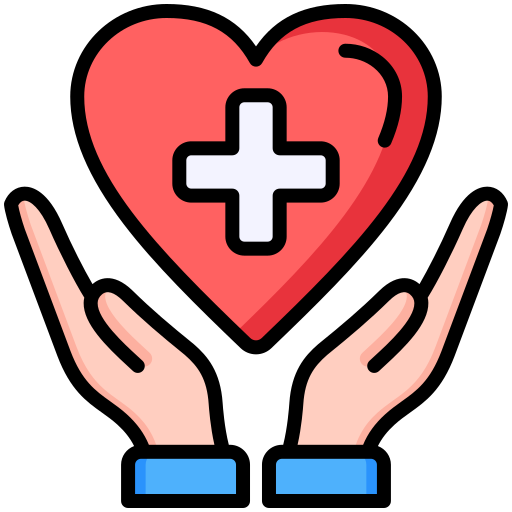Difference Between Acute and Chronic Diseases

Acute Vs Chronic Diseases: Everything You Need To Know
People across age groups suffer from various health problems at various life stages. The conditions range from a common cold that lasts a few days to advanced cancer that may number our days. While routine health issues ebb on their own, certain diseases require specialized medical care over a long duration.
It is essential to know what kind of health problem you have to avail the right medical treatment on time. Everyone must understand the difference between acute and chronic diseases. This helps you take appropriate remedial measures to safeguard your health against any kind of illness.
What is an Acute Disease?
An acute disease is a health condition that develops quickly with a rapid outbreak of symptoms. However, the disease does not last long and usually gets cured within a few days or weeks. It may affect any part of the body. An acute condition may turn chronic if the symptoms persist for a long period and cause major health complications. The common symptoms of acute diseases are cough, sneezing, sore throat, fever, nausea, and diarrhoea.
Some examples of acute conditions are as follows:
- Appendicitis
- Broken Bones
- Burns
- Common Cold
- Constipation
- Heart Attack
- Influenza (Flu)
- Pneumonia
- Strep Throat
- Urinary Tract Infection
What is a Chronic Condition?
A chronic disease is a health condition that develops over a while and is long-lasting. The disease may last for a few months, years, or even a lifetime. Though the symptoms are not severe in the initial stages, the disease slowly advances and endangers the patient’s life. Chronic diseases are one of the leading causes of disability and death in the world.
Unhealthy habits and poor lifestyle choices contribute a great deal toward chronic diseases. Some of these conditions are not curable but can be managed with proper medication.
Some examples of chronic diseases are as follows
- Alzheimer’s Disease
- Arthritis
- Asthma
- Cancer
- Chronic Obstructive Pulmonary Disease
- Diabetes
- Heart Disease
- Hypertension
- Kidney Failure
- Obesity
- Osteoporosis
- Psoriasis
- Stroke
Differences Between Acute and Chronic Illnesses
Acute Diseases
Chronic Diseases
The symptoms develop quickly
The symptoms develop gradually over time
These diseases last for a short time, maybe a few days or weeks
These diseases may last beyond a year or even a lifetime
They cause sudden damage to our body parts
The damage to the body is long-term and can be permanent
These diseases can be mostly treated with medication and can be cured completely
Not all chronic diseases can be cured. It may require complex surgeries and can turn fatal in the worst case
Examples: Common Cold, Diarrhea, Malaria, and Typhoid
Examples: Arthritis, Cancer, Diabetes, Heart Disease, and Stroke
How Are Acute and Chronic Conditions Treated?
The treatment for acute and chronic illnesses is quite different. A few acute diseases, such as sore throat or the common cold, may disappear on their own within 2 to 3 days.
Please approach your doctor if the symptoms turn severe or the problem persists for a longer period. The doctor prescribes the course of treatment after conducting a physical examination. The treatment includes one or more of the following:
- Prescription and over-the-counter medicines
- Dietary recommendations and restrictions
- Dietary recommendations and restrictions
The patient usually makes a complete recovery within a few days or weeks. Acute diseases typically do not last beyond six months.
Unlike acute diseases, patients suffering from chronic illnesses have a long road toward recovery. A chronic disease may last beyond a year. The doctors may recommend surgery and other therapies. However, some diseases are not curable. They have to be managed over the patient’s lifetime with suitable medications and lifestyle changes. This may include one or more of the following measures:
- Consumption of healthy and nutritious food
- Engaging in regular physical activity to keep the body fit
- Avoiding smoking and limiting alcohol consumption
- Getting sound sleep for 7-8 hours every day
- Regular screening for early detection of health problems
- Practising Yoga, meditation, and other relaxation techniques for better emotional well-being.
The above measures help patients strengthen their immune systems and keep the disease under control.
FAQ's About Acute and Chronic Diseases
Are chronic illnesses curable?
Chronic diseases are generally long-lasting, and many of them last for an entire lifetime. A complete cure may not always be possible, especially in the advanced stages. However, the pain and other symptoms associated with them can be controlled with proper medication and suitable lifestyle changes.
Are pre-existing health conditions covered under health insurance?
Most insurance companies provide coverage for pre-existing health conditions only after the policyholder completes a specified waiting period in health insurance. For instance, insurers in the UAE have a waiting period of six months to one year for specific diseases. Policyholders cannot make any claim in respect of such diseases during this period.
What happens if I do not disclose the details of my chronic health condition to the insurer?
You have to make a full and true disclosure of your medical condition to the insurer while buying health insurance. Deliberate concealment of material facts can result in the rejection of your claims by the insurer.
What type of health insurance plans are ideal for chronic diseases?
Critical illness insurance plans are best suited for life-threatening conditions such as cancer, heart disease, stroke, kidney failure, etc. These plans offer a lump sum payout to policyholders immediately after the disease is diagnosed. A critical illness insurance policy can be purchased in addition to your regular health insurance plan for better financial support.
Disclaimer: The above-listed chronic and acute diseases that health insurance policies cover may differ among insurance companies and depend on health coverage plans. Before making any decisions, it’s crucial to read the policy wording carefully.






